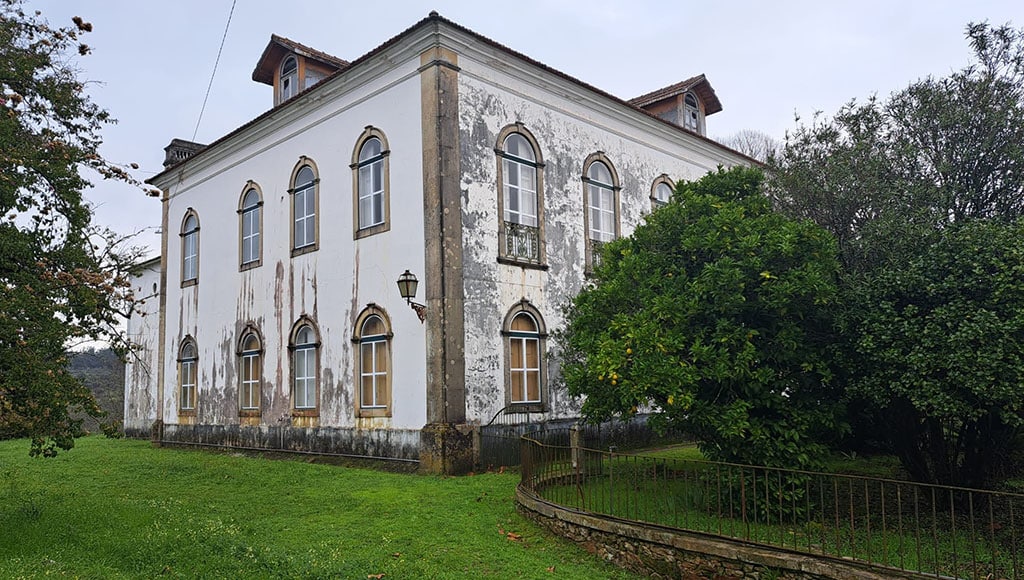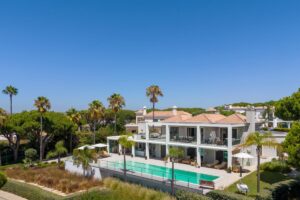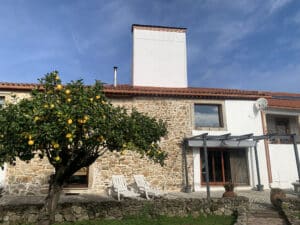Observers snipe that the increase in US citizens relocating to Portugal is a ‘mass migration’. In reality, the numbers have been low but now are rising as the decision to emigrate from America is being actioned by thousands of individuals, couples and families.
The seduction of Portugal is a heady concoction of temptations and promises, including the much vaunted ‘300 days of sunshine’, low-cost private and public healthcare systems, free state education and a reasonable cost of living.
There have been countless travel blogs, articles in Forbes, The New York Times … the media’s freeloaders have been lavishing praise on Portugal’s mellow lifestyle, her inherent safety, the food and the friendliness of the locals.
The resulting rise in tourism has been dramatic, with Portugal hosting more than one million travellers from the United States in the first half of the year, second only to the British whose long love affair with the country continues despite the occasional geo-political setback.

The osmotic nature of tourism creates familiarity and desire in equal measure. ‘To leave it all behind and seek a new life’ lay in the hearts of the early voyagers to America’s east coast, so for many there’s no inherent mental hardship to leave the US.
With the power of search engines, researching Portugal is relatively easy, but with so much comment and data available, the best advice is, visit first, remain objective and decide later.
When the honeymoon period is over, many tourists-turned-immigrants find the slow pace of life, that was such a joy when holidaying on the beach, has a flip side when resident and dealing with service providers, state institutions and local companies.
Art, culture and architecture is all very well, but when the tax office is being difficult and you can’t get through to widely publicised helplines, let alone understand their prerecorded messages when you do, Portugal can be as frustrating as many other ‘less developed’ countries.

So, what will the US incomer encounter? Chaos or opportunity, collapsed systems or functioning services? It will be a mixture, but one thing that is essential – attitude. The kind of positive, ‘can do’ attitude that created modern America needs to be dusted off and wheeled out.
For any expatriate or immigrant, a lazy obsession with ‘it’s not like that at home’, with accompanying tuts and sighs, will get them nowhere, but learning some Portuguese and smiling will.
The second most important thing is housing; where to live and should you rent or buy?
Whether you want to move to Portugal for retirement, for a base for remote working or for a calmer lifestyle, the rule of thumb is ‘rent first, buy later’, but this is increasingly difficult to achieve at a sensible cost due to rocketing rental rates in high-profile areas and nothing left to rent in many desirable inland zones.

Much of Portugal’s rental provision lacks quality, energy-efficiency and central heating, or any sort of heating. It is no good that the country is seventh on the 2024 Global Peace Index if you are freezing cold all winter.
Portugal is small but offers a variety of landscapes, from the sunny, sandy Algarve and its tourist-based economy, through the mystical Alentejo plains, to the hills and rivers of the Central Region, onwards to the mighty Douro River’s terraced vineyards and the far north, a craggy region of agriculture and weatherbeaten faces.
Many immigrants looking for a property to buy have a list of non-negotiable criteria. ‘Must have a pool’ is a common one, as is ‘must be an hour or less from the airport’.
Those insisting on such criteria will pay handsomely for no discernable long-term benefit. Finding a house inland, near one of Portugal’s hundreds of free river beaches, and being two hours from the airport rather than one, can save thousands.

Personalisation of property remains a distand dream for many buyers who are faced only with the cost-based choices already made by inexperienced developers and DIY enthusiasts.
We now watch films on our computers, read books on our Kindles, cook and eat in open-plan spaces, we need en-suites and a temperature-controlled environment, we need snug areas in which to hide away and scroll – the traditional house interior design is redundant.
Energy prices continue to climb, so properties must be bioclimatic, they need intelligent design, and they should be naturally warm in winter and cool in summer without expensive systems pumping away.
To combine the bioclimatic with a personal lifestyle layout for bedrooms, dining, garden, pool and kitchen etc, now is achievable in Portugal’s Central Region where the winters bring plentiful rainfall and the summer months are hotter than in the south.
A number of historical properties have been purchased for redevelopment in the west of this region and designs drawn up by a specialist studio using bioclimatic principles while leaving the end-user the choice of how many bedrooms and work areas, pool or no pool, one kitchen or two. Heating and cooling systems can be specified early on and installed in sympathy, especially important as some of these buildings date back 400 years.
These town, village and countryside properties now are fully insulated, redesigned how the customer wants and cost less than that beachfront apartment which is boiling hot all summer and freezing cold all winter.
Those leaving behind the comfort of their American homes no longer need suffer the thermal shock of a European winter or a hot summer with no air-con, while living in the most authentic of Portugal’s interior regions.
By Paul Rees
The author runs Rural Properties, an innovative business that invests in the Central Region, buying, renovating and selling properties. For investment enquiries: www.rural-properties.com or contact info@rural-properties.com



















